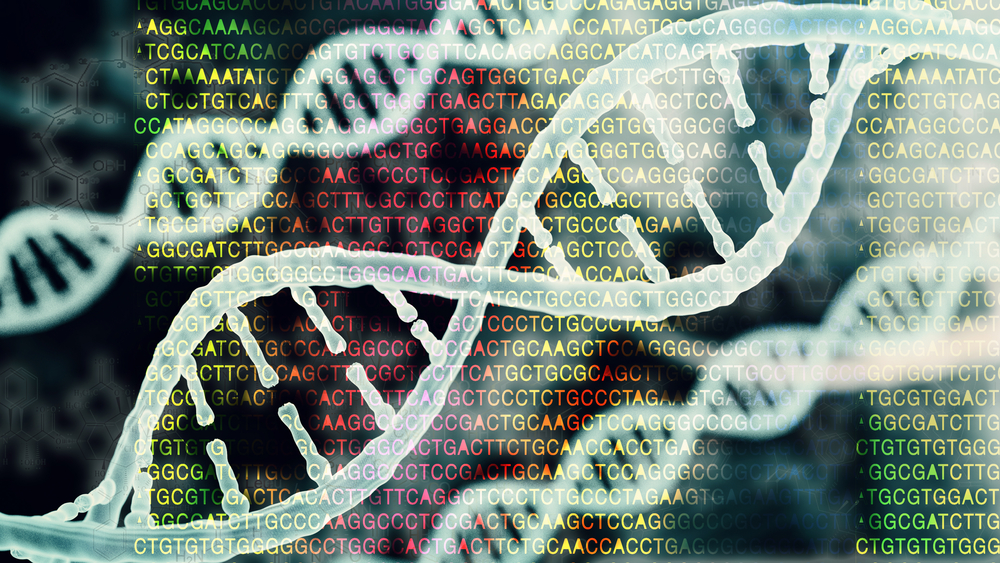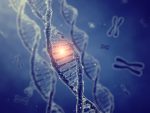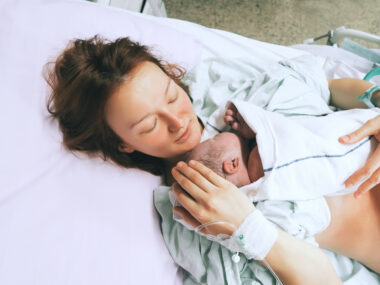Adult-onset SMA Form, With VRK1 Mutations, Found in 2 Hispanics
Written by |

CI Photos/Shutterstock
Two mutations in the VRK1 gene were found in two unrelated Hispanic adults, with symptoms suggestive of an atypical form of adult-onset spinal muscular atrophy (SMA), according to a case report.
While VRK1 mutations are mainly associated with pediatric-onset neuromuscular conditions marked by brain abnormalities and cognitive problems, these new cases are characterized by later disease onset, milder symptoms, and no brain or cognitive issues.
The newly identified mutations may also be more frequent among Latinos, compared with other populations, scientists noted.
These findings add to the number of neurological conditions associated with VRK1 mutations, and emphasize the importance of genetic testing in patients showing SMA-like symptoms but no mutations in the classic disease-causing gene, SMN1.
The cases were reported in the study “Adult-Onset Spinal Muscular Atrophy due to Mutations in the VRK1 Gene,” published in the journal Neurology Genetics.
Spinal muscular atrophies are a group of disorders characterized by the gradual loss of motor neurons, the specialized nerve cells that control voluntary movement, resulting in progressive muscle weakness and wasting.
The classic form of SMA — from its prenatal– to adult-onset types — is caused by low to no levels of SMN, a protein essential for motor neuron and muscle health, due to mutations in the SMN1 gene.
However, a number of rarer types of SMA, with varying clinical profiles, are associated with mutations in genes other than SMN1.
The VRK1 gene provides instructions to produce VRK1, a protein that regulates the activity of other proteins, such as p53 — which is involved in a number of key cellular events and is thought to contribute to the development and maintenance of the nervous system.
Mutations in the VRK1 gene have been previously associated with non-classic forms of SMA, but those mostly with an infantile or childhood onset, and accompanied by brain abnormalities and cognitive impairment.
While SMN is also known “to interact with p53, whether disease mechanisms are shared between SMN1– and VRK1-related disorders is currently not known,” the researchers wrote.
Researchers in the U.S. reported two unrelated cases of adult-onset SMA, both without brain problems, associated with newly identified two VRK1 mutations. Both patients were seen at the Nerve and Muscle Center of Texas.
The first patient was a 51-year-old Hispanic man who complained of worsening muscle weakness, mainly in the legs, over a period of 20 years. He had muscle cramps and lower back pain, but no muscle pain, and no problems speaking or swallowing, or double vision.
Further testing revealed calf muscle shrinkage, muscle weakness in the legs, but normal strength in the arms, no ankle reflexes, and high levels of creatine kinase, a marker of muscle damage. He also had signs of motor neuron damage, but no sensory or cognitive issue, or brain abnormalities on MRI.
Standard genetic testing for SMA found no mutation in the SMN1 gene, but a comprehensive DNA analysis identified a likely disease-causative mutation (p.R321C) in both copies of the VRK1 gene. (A mutation found in both copies of a gene is called homozygous, while its presence in only one copy is classified as heterozygous.)
The second patient was a 55-year-old Hispanic woman, who came to the center due to progressive weakness in her lower extremities that started at age 16. Weakness gradually affected not only her feet, but also her hands.
She reported twitching in the thigh muscles and poor balance, but no muscle cramps, sensory symptoms, vision problems, or swallowing and speaking difficulties.
The woman showed muscle shrinkage in both leg and arm muscles, pronounced muscle weakness, absent ankle reflexes, and signs of motor nerve damage. No brain abnormalities or cognitive problems were detected.
Comprehensive genetic testing identified two VRK1 mutations: p.V236M in one gene copy, and p.R321C in the other. The p.V236M mutation was also classified as likely disease-causative.
Compared with previously reported cases of VRK1-associated SMA, these two cases showed “later onset of disease with milder clinical symptoms,” and contrary to most cases involving this gene, no evidence of brain abnormalities or cognitive symptoms, the researchers wrote.
Still, these cases add to two other reports associating VRK1 mutations with adult-onset motor neuron disease without brain involvement, including one case of Hispanic descent.
Notably, the R321C mutation, in combination with another VRK1 mutation, was previously associated with adult-onset amyotrophic lateral sclerosis, while p.V236M, also combined with a different VRK1 mutation, was reported in two siblings with infantile-onset motor neuron damage and brain shrinkage.
According to a genetic database, both mutations are present at higher frequencies among the Latino population than in people of European, African, and Asian descent, and they were never found in both VRK1 copies, suggesting that a homozygous state of either mutation likely causes disease.
These findings link two VRK1 mutations with adult-onset SMA, and suggest that “disease caused by R321C and V236 may be more common in Latinos compared with other populations,” the researchers wrote.




